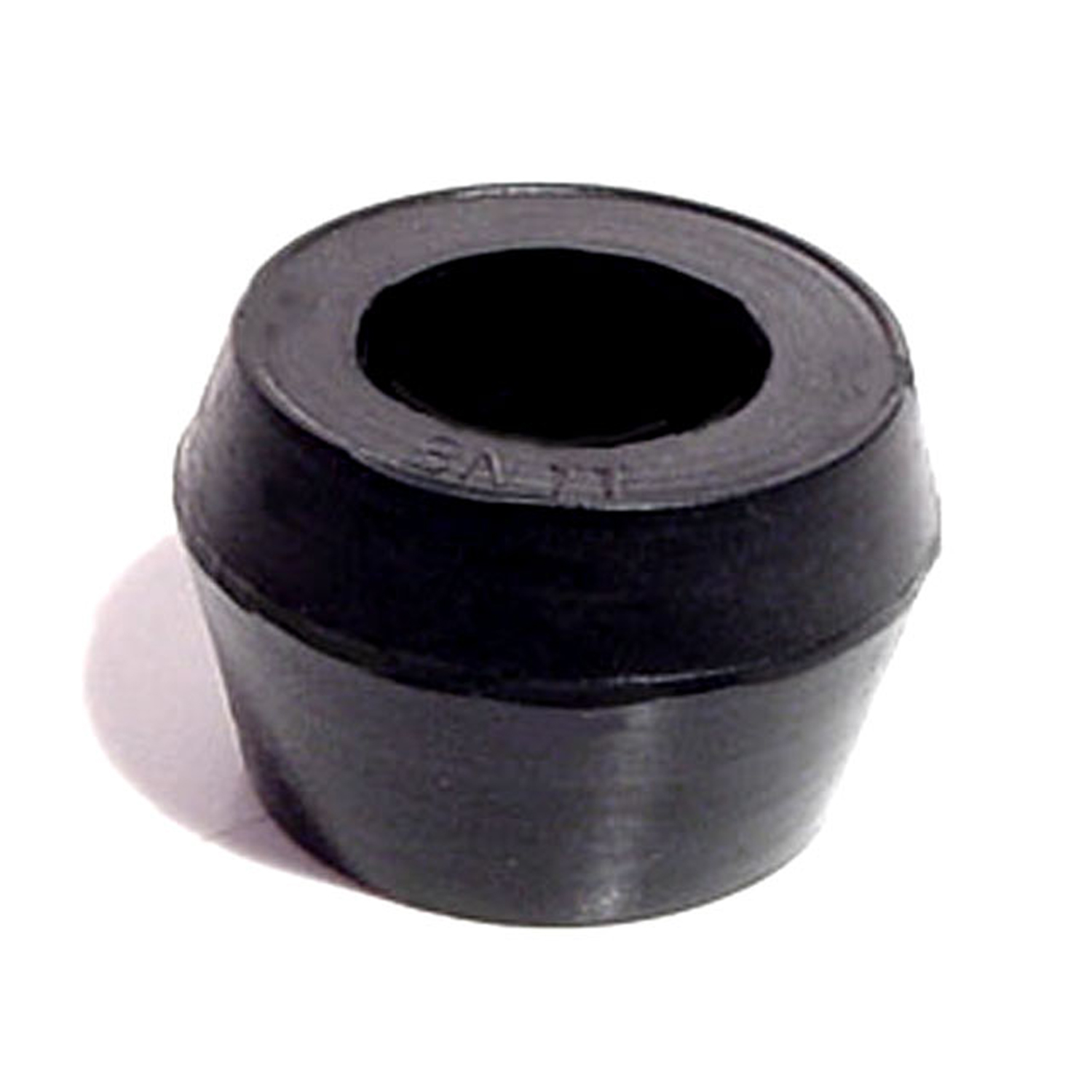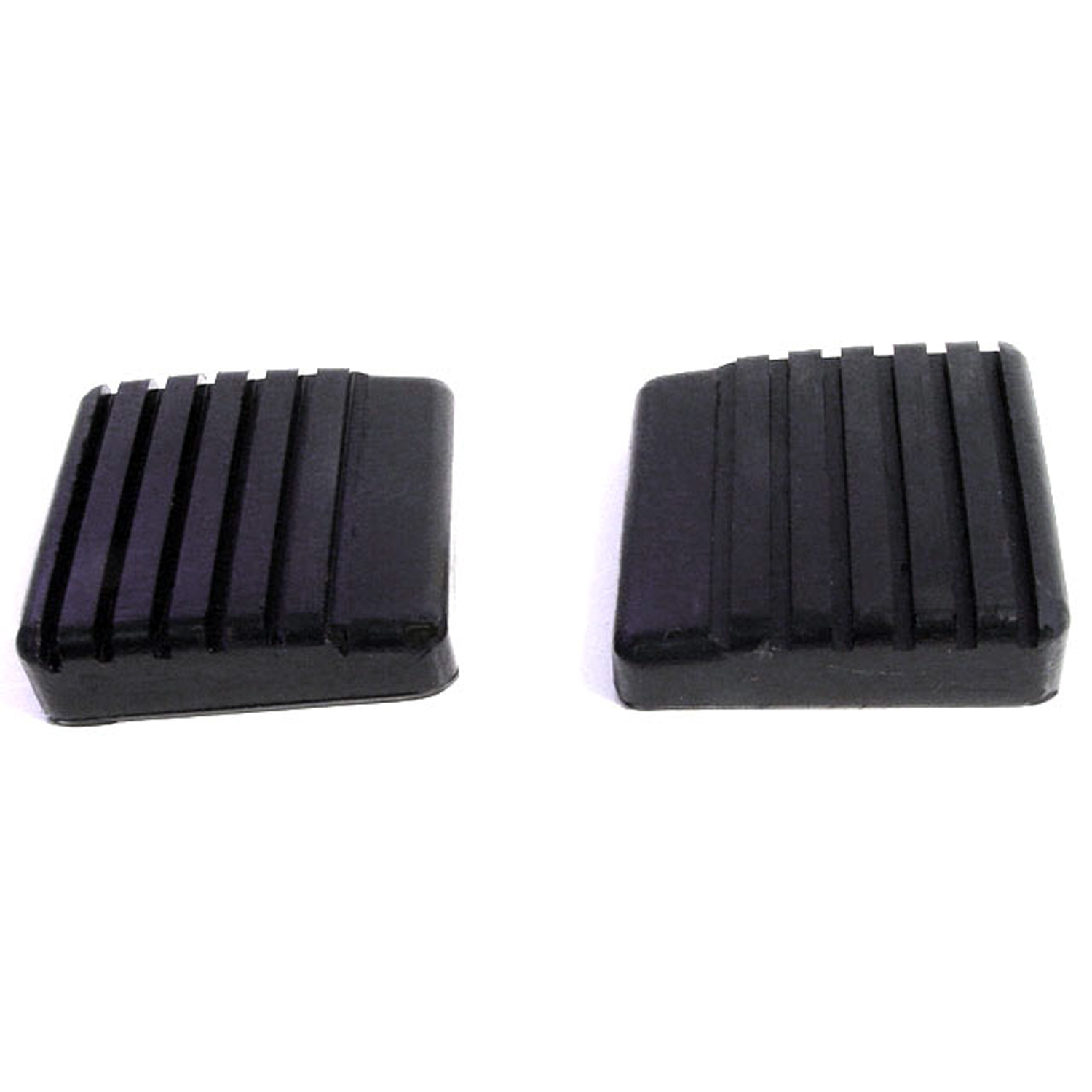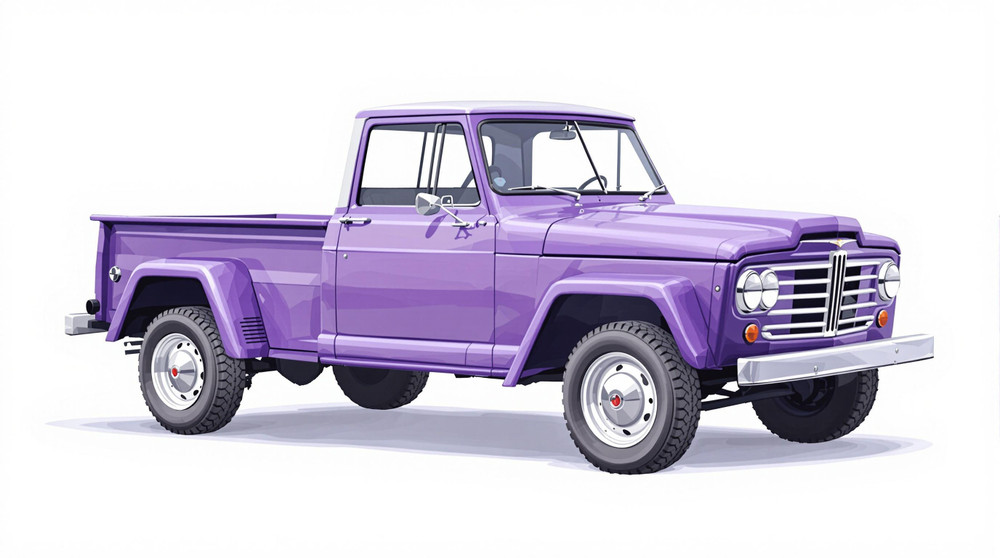Image of 1963 Jeep Fc150, Note: These illustrations use artistic license and may differ from actual historical models.
Performance Metrics
Fundamental Metrics
Emotional Appeal
MMP Rating
| Engine Specifications | |
|---|---|
| Engine: | Inline-4 |
| Displacement: | 134 cu in (2.2 L) |
| Horsepower: | 72 hp |
| Torque: | 114 lb-ft |
| Compression Ratio: | 7.5:1 |
| Ignition System: | Distributor and coil |
| Cooling System: | Liquid-cooled |
| Performance Specifications | |
| 0-60 Time: | Not available due to the vehicle's age and purpose |
| 1/4 Mile Time: | Not available due to the vehicle's age and purpose |
| Top Speed: | 60 mph |
| Transmission and Drive | |
| Drive Type: | 4WD |
| Transmission Type: | 3-speed manual |
| Fuel and Efficiency | |
| Fuel System Type: | Carburetor |
| MPG: | 15-20 mpg |
| Dimensions and Brakes | |
| Brakes: | Drum brakes |
| Wheelbase: | 81 in |
| Weight: | 2,900 lbs |
Note: Specifications for classic cars are given to the best of our ability, considering the limited and variant data available.
Unearthing the Workhorse Gem: The 1963 Jeep FC150
The 1963 Jeep FC150 emerges from the annals of automotive history as a testament to ingenuity and utility. Born from the creative minds at Willys-Overland and later under the stewardship of Kaiser Jeep, this vehicle was a bold departure from traditional truck designs. Its compact yet robust architecture allowed it to navigate the demanding landscapes of post-war America with ease. A standout fact that captures the imagination is its unique forward control design, which gave it a distinctive cab-over-engine (COE) appearance that was far ahead of its time.
Design and Innovation
The exterior of the Jeep FC150 is a visual narrative of function melding with form. Its flat-faced front, with a nearly vertical windshield, provided drivers with unparalleled visibility. The body was mounted on a sturdy frame that was shorter than conventional pickups, contributing to its nimble nature. Inside, the cabin was spartan yet practical, with materials chosen for durability over luxury. Technologically, it boasted innovations like four-wheel drive, reflecting Jeep's commitment to vehicles capable of conquering challenging terrains. While color options were limited compared to today's standards, hues such as President Red and Plantation White were popular among buyers. The FC150 was offered in various body styles, including pickup and flatbed versions, but it was the pickup that became emblematic of the model's enduring charm.
Historical Significance
The FC150's impact on automotive design cannot be overstated. It challenged conventional truck layouts by placing the driver above the front axle, thus maximizing cargo space in a smaller footprint. This design philosophy has echoed through the decades, influencing modern COE vehicles seen in various industrial applications. The Jeep FC150 stood out for its marriage of utility and compact size, setting a precedent for space-efficient vehicle design.
Performance and Handling
Performance-wise, the 1963 Jeep FC150 was not built for speed but for capability. Its top speed and acceleration were modest by today's standards, but it excelled in off-road conditions where its torquey engine and four-wheel drive system allowed it to traverse obstacles with confidence. Handling was straightforward and utilitarian; drivers could feel every nuance of the road, from bumps to gravel shifts. The driving experience was raw and immersive, connecting the driver to the mechanical heart of this workhorse.
Ownership Experience
The FC150 served various roles, from farm work to light industrial duties, and even as a daily driver for the more adventurous souls. Its reliability was a strong point, with maintenance being relatively straightforward due to its simple design and robust components. However, like many vehicles of its era, rust could be an adversary for the unwary owner.
Fun Facts
This Jeep model harbors a trove of trivia. For instance, its unusual look made it a favorite among certain niche collectors and it occasionally appeared in period films and TV shows. Criticisms typically focused on its cramped interior and limited payload capacity compared to larger contemporaries.
Collector's Information
Today, the 1963 Jeep FC150 holds a special place in the hearts of classic vehicle enthusiasts. With production numbers not as high as mainstream models, it is considered relatively rare. Values for well-preserved examples can vary widely but tend to range from $10,000 to $30,000 depending on condition and originality. As interest in unique vintage vehicles grows, prices for models like the FC150 are generally appreciating.
Conclusion
The 1963 Jeep FC150 stands as a remarkable piece of automotive history, embodying the spirit of innovation and resilience. Its legacy continues to influence design and captivate collectors around the world. For those who appreciate the blend of utility and distinctive style, the FC150 remains an enduring icon of America's motoring past.
1963 Jeep Fc150 Catalog of Parts
 1963 Jeep FC150 Shock Absorber Grommet. 1" bottom O.D-BN 11Shock Absorber Grommet. 1" bottom O.D., 3/4" high, with 5/8" I.D. Each
1963 Jeep FC150 Shock Absorber Grommet. 1" bottom O.D-BN 11Shock Absorber Grommet. 1" bottom O.D., 3/4" high, with 5/8" I.D. Each 1963 Jeep FC150 Clutch and Brake Pedal Pads. Pair-CB 61-BClutch and Brake Pedal Pads. Pair
1963 Jeep FC150 Clutch and Brake Pedal Pads. Pair-CB 61-BClutch and Brake Pedal Pads. PairWhy Choose Metro?
For over 100 years, Metro Moulded Parts has been the pinnacle of quality in classic car restoration parts. Our commitment to precision and authenticity in every component ensures a perfect fit and an OEM-level appearance.
- Expert Craftsmanship & Quality: Each part is a testament to our dedication to reliability and perfection, crafted from original designs and thoroughly tested.
- Advanced Technology: We use cutting-edge techniques to create flawless, long-lasting parts that surpass others in performance.
- SuperSoft Sponge – The Ultimate Door Seal: Not only are our door seals 30% softer than competitors', but they're also guaranteed to never leak. They effectively reduce wind and road noise, enhancing your classic car's comfort and driving experience.
- Proudly American: Our parts are a product of American craftsmanship, made in the USA with a spirit of excellence and heritage.
- Unrivaled Warranty: We back our products with a 30-year industry-leading warranty, a testament to our confidence in their quality.
Join us in preserving the legacy of classic cars with parts that are crafted for perfection, not just made.

